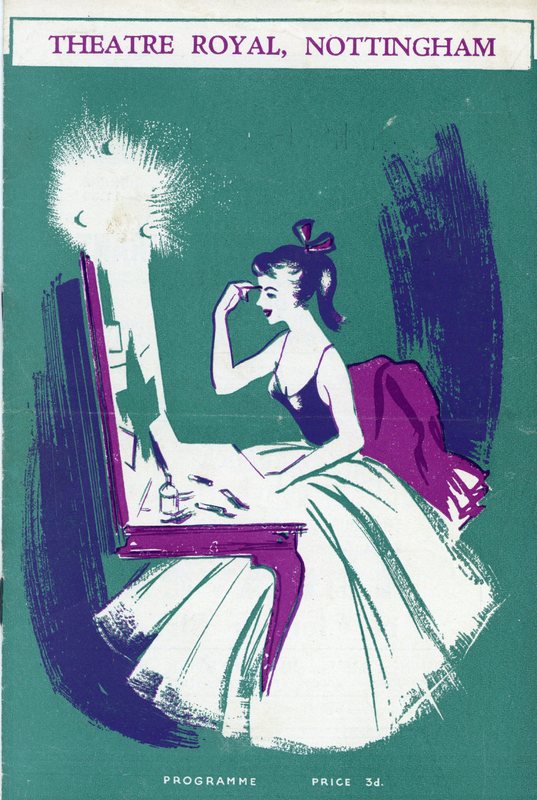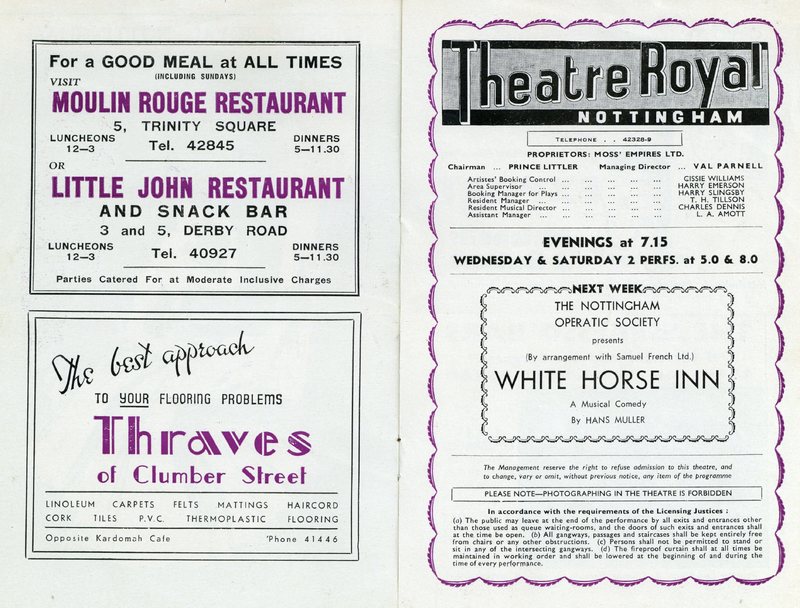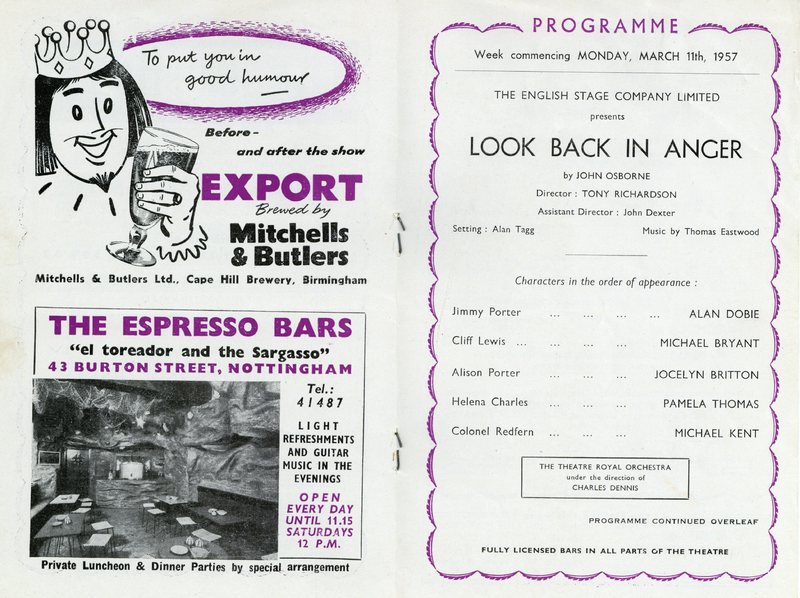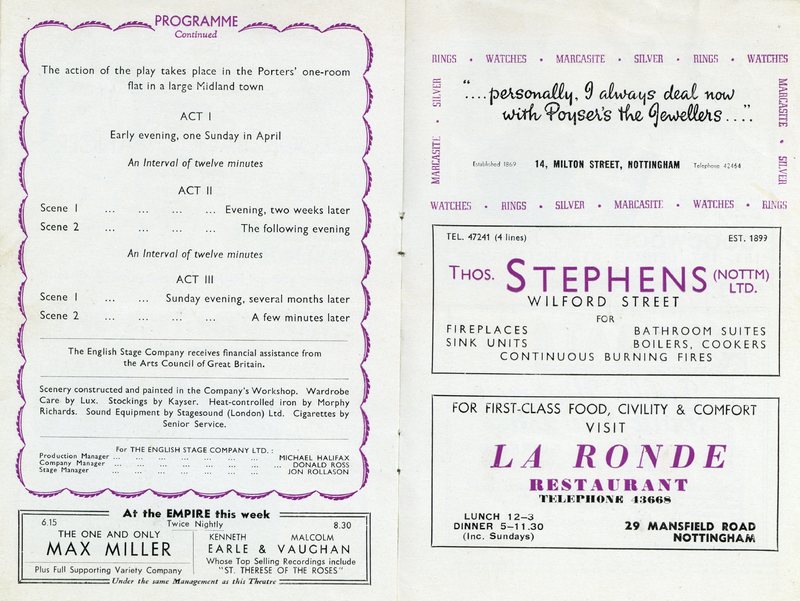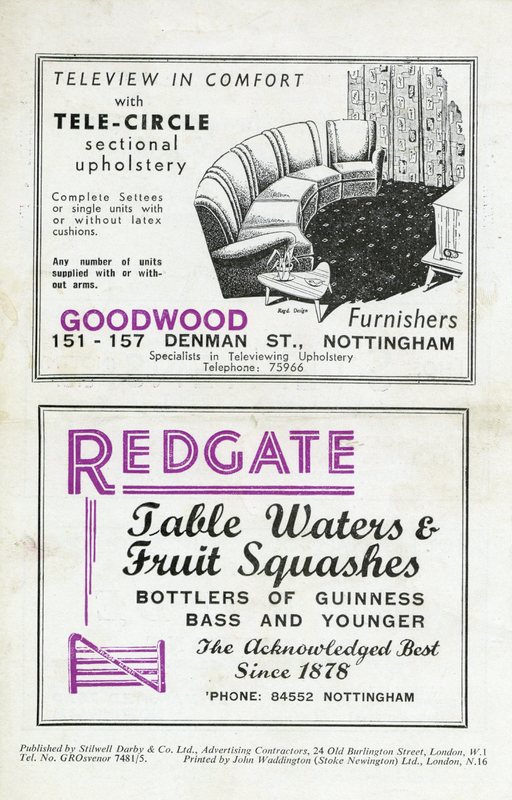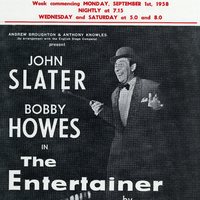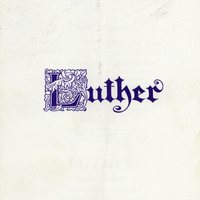Title
Look Back in Anger - Programme, 1957
Date
11 March 1957
Description
Full programme for Look Back in Anger by John Osborne and directed by Tony Richardson.
What's the story?
John Osborne’s first play Look Back in Anger is a seminal British drama of the twentieth century. It received its first performance at the Royal Court in London in May 1956. Less than a year later, the play was being performed at the Theatre Royal in Nottingham.
The play had a major impact, and through its central character of Jimmy Porter gave rise to the new wave of ‘angry young men’, those disillusioned with post-war British society.
In a 2015 essay for The Guardian, critic Michael Billington describes why the play made such an impression:
“But why did Look Back in Anger make the impact it did? The first, and most obvious point, is that it put so much of 1950s England on stage. Through the eloquent arias – “not ‘tirades’,” insists Osborne – of Jimmy Porter, it tackles sex, class, religion, politics, the press and the sense of a country stifled by an official, establishment culture.
In the 1950s the play was prized, above all, as a social document: an eloquent testament of alienated youth. Later it came to be seen as a Strindbergian study of a marriage steeped in love and hate. But, increasingly, I suspect Osborne’s real revolution lay in liberating theatrical language. Osborne himself has written of his despair, as a young actor, of trying to learn Somerset Maugham’s dialogue: “Dead, elusively inert, wobbly like some synthetic rubber substance,” was his typically damning phrase.
But Osborne’s language is thrillingly alive and calls on a variety of sources, ranging from Bunyanesqe moral rigour (note the emphasis on words like “fire” and “blood”) to the rat-a-tat repetitions of the music-hall and the sexual candour of DH Lawrence. Osborne showed that theatrical prose could achieve its own distinctive poetry.”
This production of Look Back in Anger starred Alan Dobie, Michael Bryant, Jocelyn Britton, Pamela Thomas and Michael Kent.
In 1961, the Theatre Royal Nottingham was to stage the world premiere of Luther, Osborne’s fifth play, starring Albert Finney.
The play had a major impact, and through its central character of Jimmy Porter gave rise to the new wave of ‘angry young men’, those disillusioned with post-war British society.
In a 2015 essay for The Guardian, critic Michael Billington describes why the play made such an impression:
“But why did Look Back in Anger make the impact it did? The first, and most obvious point, is that it put so much of 1950s England on stage. Through the eloquent arias – “not ‘tirades’,” insists Osborne – of Jimmy Porter, it tackles sex, class, religion, politics, the press and the sense of a country stifled by an official, establishment culture.
In the 1950s the play was prized, above all, as a social document: an eloquent testament of alienated youth. Later it came to be seen as a Strindbergian study of a marriage steeped in love and hate. But, increasingly, I suspect Osborne’s real revolution lay in liberating theatrical language. Osborne himself has written of his despair, as a young actor, of trying to learn Somerset Maugham’s dialogue: “Dead, elusively inert, wobbly like some synthetic rubber substance,” was his typically damning phrase.
But Osborne’s language is thrillingly alive and calls on a variety of sources, ranging from Bunyanesqe moral rigour (note the emphasis on words like “fire” and “blood”) to the rat-a-tat repetitions of the music-hall and the sexual candour of DH Lawrence. Osborne showed that theatrical prose could achieve its own distinctive poetry.”
This production of Look Back in Anger starred Alan Dobie, Michael Bryant, Jocelyn Britton, Pamela Thomas and Michael Kent.
In 1961, the Theatre Royal Nottingham was to stage the world premiere of Luther, Osborne’s fifth play, starring Albert Finney.
Type
Programme
Location of item
Theatre Royal & Royal Concert Hall Nottingham
Rights
Theatre Royal & Royal Concert Hall Nottingham
Contributor
Researcher: David Longford
